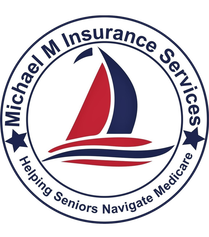What works best? Well, that depends.
For starters Medicare Supplement, there is no “Better.” Since there is no one-size-fits-all plan it depends upon an individual’s personal health needs. Both plans offer coverage to help limit the cost exposure to having Original Medicare alone. One type of plan offers more benefits than having just Original Medicare while the other has more portability and has greater flexibility with where it can be used. One type of plan will have a monthly premium(Over and above the monthly Part B premium) in exchange for lower or no cost share when used, the other will have a low or no monthly premium in exchange for a slightly higher cost share when used. One type of plan can have a Part D Prescription Drug Plan included while the other will have to have a separate stand alone Part D added. Things to consider when choosing a Medicare Health Insurance Plan include-
The Cost of Medications
The Cost of Services(Copays/Coinsurance etc.)
Doctor and Hospital Networks (if any)
Special Needs and Chronic Conditions
Monthly Premium
Maximum Annual Cost Exposure
Travel
Availability of additional benefits like Dental,Vision and Hearing
Once these considerations are addressed then it becomes easier to narrow down which plan(s) will be best suited for one’s individual needs. But, it’s also a good idea to have a good understanding of the plans and the pros and cons associated with each before making a choice.
Let’s Get Started.
Medicare Supplement (Medigap)-
Medicare Supplement plans have been around since 1980. Since Original Medicare does not cover 100% of the Hospital (Part A) and Medical (Part B) costs, Medicare Supplement/Medigap plans were devised to help Medicare Beneficiaries cover their cost share or, “Gaps” in the Original Medicare Health Insurance coverage. Since Original Medicare is still the Primary Payer and the Medigap plan is Secondary there are no Doctor or Hospital networks. The only requirement is that the Doctor or Hospital accept Medicare making the plans portable and able to be used in any state. As if things weren’t confusing enough with A,B,C and D Medicare, Medicare Supplement/Medigap Plans are letter designated(Plans A-F) as well. Medicare Supplement/Medigap plans have “Standardized Coverage” meaning the coverage between plans is generally the same with differences being the cost of the monthly premium and cost share associated with it. Some plans offer enhanced benefits such as 100 Days in a Skilled Nursing Facility instead of the standard Medicare 20 days. But, Original Medicare does not cover items like Dental,Vision, Hearing Aids and Gym Memberships which means your Medicare Supplement/Medigap doesn’t either.
Prescription Medications– Original Medicare does not cover prescription medications so your Medicare Supplement/Medigap plan won’t either. A Part D Prescription Drug Plan must be added and is available from private insurance companies.
State Rules– There are differences between states as when someone can enroll in a Medigap plan including Medical Questionnaires and pre existing conditions issues. Our discussion pertains to individuals residing in the State of New York where preexisting conditions are limited with no Medical Questionnaire used.
To better see plan differences I have included a plan chart for your convenience.
Medicare Advantage Plans-
Medicare Advantage plans came into existence in 1997. Like Medicare Medigap plans, they offer coverage to help lower the cost sharing associated with Original Medicare. Unlike Medigap plans, they offer plans with little or no premium but they also come with higher cost sharing when utilizing Medicare covered services.Which means there are copays for pretty much everything you do. Medicare Advantage Plans mirror the Health Insurance Plans we’ve used our whole lives. Unlike Medicare Supplement/Medigap plans, some Medicare Advantage plans come with a Part D Prescription Drug plan coverage included.
The 4 most popular types of Medicare Advantage Plans are-
HMO- Health Management Organization–
This type of plan was the first type of Medicare Advantage Plan to be used. The term “Health Management” refers to coordinated care by a Primary Care Physician (PCP). This means that your Primary Care Doctor is involved with all aspects of care, including visits to a Specialist, which prompted the requirement of a referral. Also, HMOs have a set Doctor/Hospital network that Medicare Beneficiaries have to stay in or pay the Full Cost(Medicare Rates) of the visit. Recently, HMO plans have eliminated the referral requirement, but the need to stay in the network remains. Most plans still require choosing a Primary Care Physician prior to enrollment.
PPO- Preferred Provider Organization–
PPOs were developed as an alternative to HMOs to provide more flexibility. Medicare Beneficiaries can go in and out of the plan network but incur a higher cost when going out. A “Preferred Provider ” is an “In-Network” provider that will come with a lower cost than an out-of-network provider. This applies to Hospitals, labs, and any other Medicare-covered services. When using an out-of-network provider, a Beneficiary may have to pay the full cost (Medicare Rate) to the provider and get reimbursed by the Insurance Carrier up to the out-of-network copay.
DSNP-Dual Special Needs Plans-
Plans are available to individuals enrolled in both Medicare and Medicaid and are income-tested. These plans also include extra benefits like over-the-counter pharmacy allowances and food cards.
CSNP- Chronic Special Needs Plan–
Plans that are available to individuals with specific Chronic conditions.
Additional Benefits Medicare Supplement-
Medicare Advantage Plans also offer services over and above Original Medicare. Many plans offer services such as-
Dental Coverage
Vision Coverage
Hearing Aids
Gym Memberships
TeleHealth Services
Over The Counter Cards
Cost Capping–
Since Original Medicare doesn’t have any limit to what a Beneficiary can spend in any calendar year, both Medicare Supplement/Medigap and Medicare Advantage have limits as to what a Beneficiary may be responsible for. With Medicare Supplement Plans the most an individual will spend is usually limited to the monthly premium depending upon the chosen plan. With Medicare Advantage, each plan has what is known as a MOOP, a Maximum Out Of Pocket expense. A PPO for example could have a MOOP of around $7500 in network and $11,000 out of network. Once the individual reaches the MOOP they no longer have any cost sharing and the Medicare Advantage plan continues to cover the costs until the end of the plan year (12/31) at which time the process starts again.
Pros and Cons-
Medicare Supplement/Medigap
Pros–
No Doctor Network– Any Doctor/Hospital that accepts Medicare will accept the Plan since Medicare is still the Primary Payer.
Low/No Copays– Medigap plans pay for most of the cost share of Original Medicare and some plans will actually pay all of the Cost Sharing associated with Original Medicare. This makes it ideal for individuals that use their Health Insurance frequently.
Travel– Medigap plans are portable and because of the “No Network” aspect of them they are ideal for individuals that travel around the country often and sometimes travel abroad.
Cons–
Monthly Premium– The monthly premiums are over and above the Part B Premium (Base Premium for 2023 $164.90). Individuals have an expense even in the months when the plan is not being used.
Prescriptions– Prescription Medications are not covered by Medicare and therefore not covered by the Medigap plan. Individuals will have to obtain Prescription coverage from a Stand Alone Part D Drug Plan through a private insurer at an additional premium.
Additional Benefits– Medicare does not have options for Dental/Vision benefits which means the Medigap plan does not either. A Dental/Vision plan will have to be purchased from a private company.
Medicare Advantage Plan–
Pros–
Monthly Premium– Medicare Advantage Plans are available for premiums as low as $00.00, making them affordable for those on a budget.
Additional Options– Medicare Advantage Plans offer options not offered by Original Medicare such as coverage for Dental and Vision and most offer a free Gym Membership. Some also have coverage for Chiropractic and Acupuncture services and have Telehealth services available.
Prescriptions– Most have the Part D Prescription Drug plan embedded so there is no need to add separate coverage.
Cons-
Doctor/Hospital Network– Medicare Advantage Plans have Doctor and Hospital Networks. When services are obtained from an “Out-Of-Network” provider, costs can become expensive, even with the flexibility of a PPO.
Copays/Coinsurance– As mentioned, Medigap Plans have very low or no copays. You will pay more for services with Medicare Advantage.
Summary-
As you can see there are differences between the Plan Types but it is all based on Original Medicare Coverage and how an individual wants to pay for their cost sharing associated with Medicare. Care should be taken when choosing a Medicare Health Insurance Plan. As you can see, there are advantages and drawbacks to both. The good news is there are enrollment periods when you can change depending upon your health needs. We do not endorse one plan over another, our advisory is based solely on an individual’s Health Insurance needs and requirements.
Frequently Asked Questions
What does Medigap mean?
The “Gap” in Medigap refers to your Medicare cost sharing and is considered a gap in coverage.
Do all Medicare advantage plans have Doctor and Hospital Networks?
Yes, they are HMO’s, PPO’s PFF’s and more which all have networks.
If I want a plan that has no network requirements can I get one?
Yes, Medicare Supplement(Medicgap) Plans are secondary to Medicare which does not have networks and is accepted in all 50 states
Mike Miligi- Owner- Michael M Insurance Services
For over 10 years Mike has been assisting Seniors and other Medicare eligible individuals understand the ins and outs of Medicare and Medicare Health Insurance options including Medicare Advantage Plans(Part C), Medicare Supplement Plans(Medigap), Prescription Drug Plans(PartD) and Dental and Vision programs.
Mike is Licensed in 7 States and Certified with 11 Insurance Carriers and has helped thousands of individuals decide on the best course of action for their particular Health Insurance needs. Because Mike is an Independent Medicare Health Insurance Broker, he works for the client not the Insurance Carriers and is able to provide his clients with accurate and unbiased Health Insurance options.


